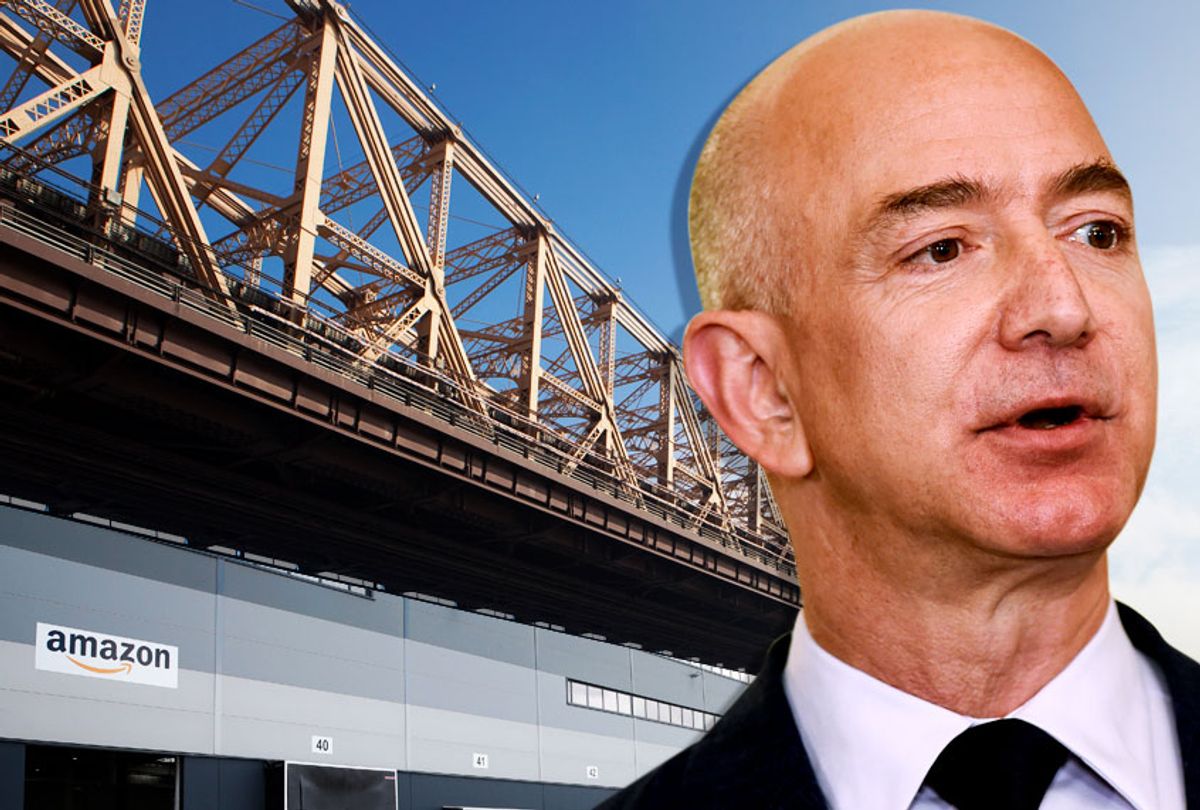Here in New York, we’ve been watching for weeks as neighbors in Long Island City, which is one subway stop away from Manhattan, have been resisting Amazon’s offer to locate their vaunted second headquarters here and in suburban Washington.
Finally, Amazon had enough: No love, no second headquarters for New York. Drop Dead, Amazon.
On the one hand, this move should be celebrated as a victory of sorts for citizen protest over corporate handouts. The deal to bring Amazon to the city had followed a nationwide hunt-and-peck for the perfect setting for the world’s biggest online retailer. The local complaint was that rather than having city and state officials trying to lure the corporate giant with long-term tax breaks, the neighborhood wanted Amazon to pay vast amounts into subway improvements and other civic projects.
On the other, it is an only-in-New York moment to turn away from 25,000 new, high-paying jobs, and pull up the city drawbridge to leave a dangerous moat in place for the incoming business. It is a classic Not In My Backyard Moment to decide that this is the one development that breaks the camel’s development back.
The issue cuts both ways. For those seeking jobs, this will be a blow; for those who already have their jobs and homes, it is easier to see the protest against Amazon. For those who are fans of citizen protest over corporations, this is a beautiful valentine.
The one thing I’m sure of is that the hoo-hah here in fuggedaboutit-New York must have come as a surprise to those officials at Amazon who think that they should be seen as royalty dubbing a particular location as a choice spot. They had gone through hundreds of competing local and state entreaties offering tons of financial incentives in return for the promise of good paying jobs, and undoubtedly had expected to be coronated rather than demeaned for choosing New York City.
But we in New York are spending too many hours these days trying to get from one place to another in a subway that is hopelessly out of date for the millions of daily passengers. The idea of another 25,000 people a day on the 7-line was a prospect too far. Then there was the general skepticism that there really wouldn’t be 25,000 or more actual jobs, or that they would be for a diverse New York job-seeking population. Or that there actually would be an instant arrival of 25,000 new folks competing for apartments in Manhattan and Queens.
There has been quite a lot written lately about how the tech industry has ruined the housing markets in and around San Francisco and Seattle. Microsoft just announced a program to pour $500 million into creating more affordable housing alternatives in Seattle, for example.
The area of SoHo in New York City around Google’s installation has been transformed with tons of higher rent apartments as well as businesses that have displaced long-time local bistros. Google has indicated that it will be adding more, and, of course, related businesses are following as well.
There is a basic lessons-that-should-be-learned in all this, of course. Corporations will succeed better in urban environments if they worry as much about the impact of their footprint as they do access to a brainy population, easy transportation out of town and an acceptable cultural setting for their workers. How much more agreeable this could have proved for Amazon if they had agreed to sponsor improvements of that 7-line subway?
Indeed, when has this formula not proved correct — whether for industries, businesses, universities or politicians?
Most major universities that grow face opposition from neighborhoods that they demolish to make more way for dormitories and extra classrooms. In West Harlem, Columbia University today is dealing with opposition from local groups whose protests can easily create uncomfortable public relations efforts.
In the case of Amazon, Gov. Andrew Cuomo and Mayor Bill DeBlasio, rivals in most things, came together to argue both that a chance to invite this many new jobs at once and get them to agree to conditions that offered far less than some of the 100 competing cities. Still, to the neighbors in Long Island City, the worldview goes as far as the corner subway stop.
The argument that the income taxes from 25,000 over time would be far more than the $2 billion offered in incentives just didn’t wash for those who don’t really want change.
It is hard to conclude that the neighbors are wrong. Continuing gentrification coming to New York neighborhoods have made wide swaths of the city unavailable for housing cops, teachers, firefighters on whom the city depends.
Personally, I think that Amazon should have located its headquarters in Detroit, Albany or West Virginia wherever they could have addressed job creation in a place where the effects would be huge.




Shares